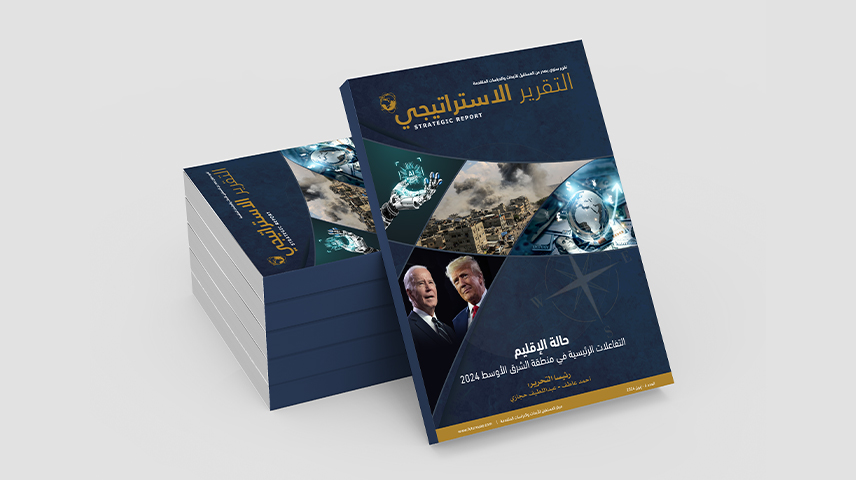Future Center for Advanced Research and Studies has released the sixth issue of its annual "Strategic Report" titled "State of the Region: Key Interactions in the Middle East Region 2024." This report was prepared with the participation of experts and researchers from various specializations at the center and was edited by Ahmed Atef, the executive editor of the center's website, and Abdul Latif Hegazy, the Executive Editor-in-Chief of Future Books.
The report predicts the significant trends that are expected to shape the Middle East region in 2024. It takes into account the ongoing developments in the region, as well as the global transformations that have an impact on the region. Of particular importance are the roles played by international powers in influencing the direction of various issues and interactions in the region.
The Middle East remains a focal point of global attention, and it is anticipated that this focus will continue into 2024. This is due to the significant interactions and events taking place in the region, particularly the Israeli war on the Gaza Strip, which began on October 7, 2023. The repercussions of this war are being felt both within and outside the region, and it has drawn the involvement of international powers and certain regional actors.
In addition to the Gaza war, there are other major factors that contribute to understanding the current state of the Middle East in 2024. Some of these factors originate from within the region itself, such as threats to maritime security, the stagnation of armed conflicts, the dangers of terrorism, and the internal conditions of countries like Israel, Iran, and Turkey. Additionally, there are other key factors that are related to major international transformations, which subsequently impact not only the Middle East but also other regions of the world. These include the ongoing Russian-Ukrainian war, the rise of China, and the numerous elections taking place this year, including those in the United States, Russia, India, and Taiwan. Furthermore, the expansion of international blocs and their role in reshaping the global order, as well as trends in armament, the global economy, climate change, and artificial intelligence, are all issues that are relevant to the Middle East and beyond.
In this context, the "strategic report" covers six main axes that address the major trends expected in 2024. The first axis focuses on the "international transformations" impacting the Middle East region. The second section of the report highlights the "repercussions of the Gaza war" on the region. The third axis examines the "political and security interactions in the Middle East." The fourth axis, titled "Beyond COP28," monitors climate change issues and their anticipated trends in the region, particularly after the successful United Nations Framework Convention on Climate Change "COP28" conference in the UAE. The fifth axis, titled "Economic Trends," follows economic conditions in the world and the region. The report concludes with the sixth axis, which explores "technological developments," specifically artificial intelligence and its expanding use worldwide.


